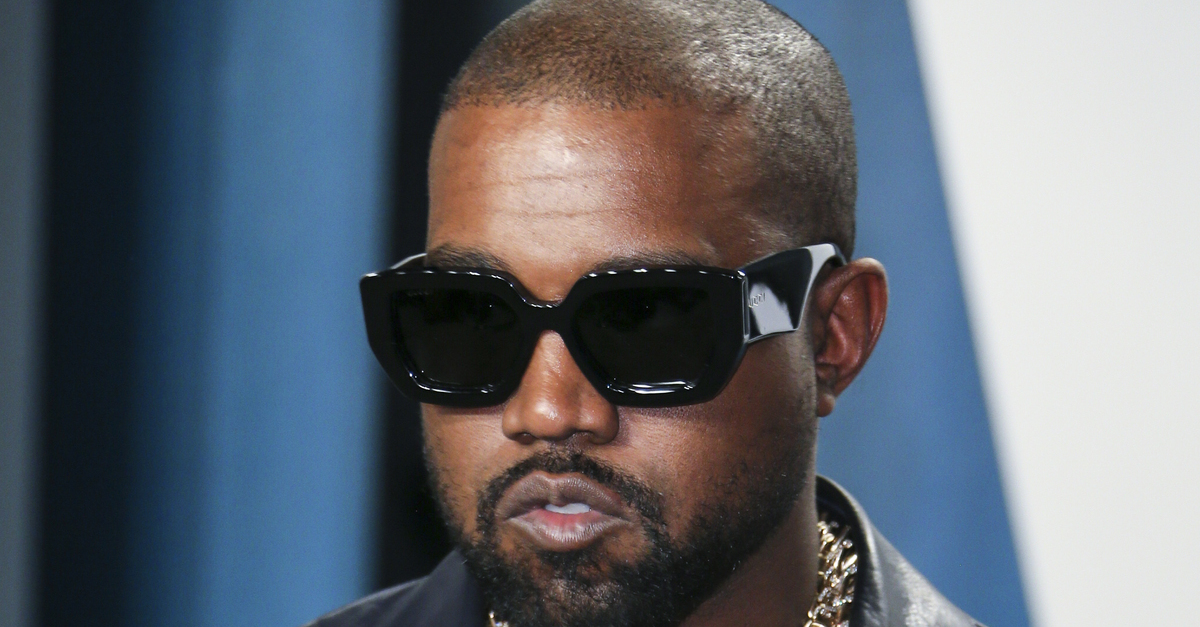
I think I speak for most of us when I say news of Kanye West’s bid for president felt a lot like learning about the murder hornets. We heard about it, we briefly worried it would cause 2020 to get even more horrific, and ultimately, we ignored it and assumed it would go away without direct damage to the ecosystem. ‘Ye, though, still seems pretty committed to shaking things up at 1600 Penn, so we need to pay a bit of attention.
The first we heard of West running for president was in early July. Since then, we’ve learned that he’s running for the Birthday Party, that he is no longer besties with President Donald Trump, that he’s never voted in his life, and that he had COVID-19 in February. Oh, and he’s planning to model his White House on the fictional country Wakanda from Black Panther. No word on whether he’ll have his own salute.
On July 15, West filed a statement of candidacy with the Federal Election Commission and paid the $35,000 fee necessary to be listed on the ballot in Oklahoma.
Independent presidential candidate Kanye West has qualified for the General Election ballot in Oklahoma. (Today is Oklahoma’s deadline for Independent & Unrecognized Party presidential candidates to file statements of candidacy with their petitions or filing fee.)
— Oklahoma State Election Board (@OKelections) July 15, 2020
As recently as July 18, West was asking voters to help him get onto the ballot in South Carolina.
Hi guys please sign up to put me on the ballot in South Carolina at any of these locations You can also sign up at the websitehttps://t.co/ZURvTEW9ee pic.twitter.com/3rV5ujExPm
— ye (@kanyewest) July 18, 2020
On July 19, West held his first campaign rally in Charleston South Carolina. His performance at that rally was, well, bizarre. He ranted against Harriet Tubman, saying that she committed a “skeezy move” when she “never actually freed the slaves, she just had them work for other white people.” On women’s rights, he said that in order to discourage abortions, mothers should get financial incentives, such as, “Everybody that has a baby gets a million dollars.”
Kanye West: “Harriet Tubman actually never freed the slaves. She just took them to work for other white people.” pic.twitter.com/rFB5X0bTC6
— Alex Salvi (@alexsalvinews) July 19, 2020
Bewildering campaign strategy aside, Kanye appears to be falling short of following the laws for presidential hopefuls. There are some actual rules about what’s required for someone to run for president. And those rules are state-specific. Because West isn’t the nominee of Republicans or Democrats chosen at a national convention, he’d be an independent candidate. That means he has to petition each state to have his name printed on the general ballot.
There are all sorts of different deadlines and filing requirements for each state, and a presidential candidate must meet all of them to get on the ballot in time for the general election.
If you’re thinking that having fifty different sets of rules for requirements to become the president of all fifty states is cumbersome to the point of apoplexy, you wouldn’t be alone. But this is the system we have. As part of the American system of federalism, individual states are the sovereigns of their own elections. They get to manage their own processes, even when (especially when?) we’re talking about the election of a national leader.
The rule in South Carolina is that Kanye needed at least 10,000 signatures by Monday to get onto the ballot. But the South Carolina Election Commission confirmed to Newsweek that nothing had been delivered to them in time to meet the deadline. Similar deadlines for Florida, Michigan, and North Carolina have already passed — and West’s performance in Florida was a bit messy to say the least. And by August 5, deadlines in states whose electoral votes would total to 270 (the number needed for a presidential win) will have passed.
It’s theoretically possible for West to become a “write-in candidate,” but it’s anyone guess whether West will comply with those rules. Some states don’t allow write-ins at all, but in 33 of those that do, Kanye would need to file paperwork ahead of the election to permit it.
While the rapper’s paperwork game seems slow at best, Kanye does appear to be ready for some more shows. He reportedly has an upcoming campaign event scheduled for New York, where the filing deadline requires him to collect 30,000 signatures by July 30.
Many other questions about a Kanye West presidential run still want for answers. For example, who would be his running mate?
Kanye West wants Jay-Z to be his running mate for President https://t.co/L5mk1pWWON
— XXL Magazine (@XXL) July 20, 2020
Kanye West no longer supports Trump—“I am taking the red hat off, with this interview,” he told @RandallLane—and intends to run for election under the banner of “the Birthday Party.”
He’s picked Michelle Tidball, a preacher from Wyoming, as running mate.https://t.co/YrdgOrSuDj
— Jennifer Jacobs (@JenniferJJacobs) July 8, 2020
[image via Jean-Baptiste LaCroix/AFP Getty Images]